Advanced Heart Failure and Transplant Cardiology Fellowship
About the Program
Quick Facts:
- Duration of the program is 12 months; 75% inpatient care and 25% ambulatory care
- Rotations include: Inpatient/consultation service. Longitudinal ambulatory care, cardiac catheterization laboratory, research, conferences.
- University of Iowa Hospitals & Clinics has a tradition of medical excellence with facilities for clinical and research training.
- Following completion of the training program the fellow will be able to develop and enhance the trainee’s skills:
- In the clinical assessment of the advanced heart failure patient (eg ACC/AHA clinical stages C and D) and assessing candidacy for advanced heart failure therapeutics (including inotrope support, intraaortic balloon pump (IABP), extracorporeal membrane oxygenation (ECMO), ventricular assist device (VAD), and cardiac transplantation)
- In the clinical assessment of pulmonary hypertension and use of pulmonary vasodilator therapy.
- In communicating findings and diagnostic/therapeutic plans to the patient and family as well as the patient’s primary care physician
- In leadership and teaching of residents and general cardiology fellows that are otherwise caring for the patient or rotating through the Advanced Heart Failure/Transplant service.
Core Curriculum Topics and Learning Objectives
Management of the advanced heart failure patient
- Develop cognitive knowledge
- Develop cardiovascular biology and physiology knowledge
- Demonstrate technical skills
- Understand when to refer for cardiac intervention (percutaneous/surgical)
- Understand the risks of non-cardiac surgery and demonstrate ability to perform perioperative risk assessment in the HF patient
Evaluation of patients for cardiac transplant or mechanical circulatory support
- Understand indications/contraindications for transplant or mechanical circulatory support
- Evaluate the risks of transplant/mechanical support and weigh the risks with the patients’ heart failure status to justify proceeding with transplant/mechanical support surgery
- Demonstrate ability to evaluate sensitization and understand donor matching protocols
- Recognize psychosocial factors that increase the risk of adverse transplant outcomes
Management of the post-cardiac transplant patient (at least 30 patients of whom at least 5 are seen during initial transplant hospitalization)
- Understand the immunologic principles of immunosuppression
- Demonstrate the ability to recognize and manage side effects of immunosuppressive therapy
- Recognize the risks of malignancy development in the long-term post-transplant patients
- Know and demonstrate the ability to use the protocol for managing immunosuppression and performing surveillance biopsies for acute rejection
- Demonstrate understanding and appropriate use of non-invasive biomarker testing for acute cellular rejection
- Demonstrate ability to perform surveillance endomyocardial biopsy
- Manage both acute cellular and humoral allograft rejection
- Diagnose and manage cardiac allograft vasculopathy
- Prevent and manage CMV and other opportunistic infections
Management of the post-VAD implant patients (at least 10 of whom at least 2 are being managed perioperatively)
- Demonstrate understanding of the difference between pulsatile and continuous flow VAD pumps, as well as familiarity amongst different pumps
- Understand the importance of proper anticoagulation and thromboembolic prophylaxis
- Recognize the signs of VAD pump malfunction such as increasing pump power requirements or decreasing flow rates
- Recognize when patients who are managed as bridge-to-transplant are stable for transplant waitlist activation
Evaluation and management of pulmonary hypertension
- Demonstrate the ability to evaluate pulmonary hypertension and diagnose according to the World Health Organization classification scheme
- Demonstrate the ability to use history, examination, and test data to appropriate risk stratify patients
- Demonstrate the ability to treat patients with pulmonary vasodilator medications appropriately, and demonstrate recognition of side effects or evidence of drug intolerance and manage these symptoms appropriately
- Recognize when PH symptoms are progressing and require either treatment changes or referral for lung transplant evaluation
- Recognize and manage evidence of resultant right heart failure
End-of-life issues
- Assess the mortality risk factors and prognosis in advanced heart failure patients
- Demonstrate ability to conduct end-of-life and palliative care discussions with the patient and the family
- Demonstrate ability to incorporate patient/family wishes and end-of-life goals into the treatment plan
Weekly Teaching Conference Schedule
Wednesdays
- Heart Failure/Pulmonary Hypertension Research Conference - 7:00am
- General Cardiology Grand Rounds - 7:30-8:30am
Thursays
- Morbidity and Mortality Conference - 7:00am
- Internal Medicine Grand Rounds - 12:00-1:00pm
Fridays
- Multidisciplinary Transplant Selection Conference - 8:00am
- Endomyocardial Biopsy Review - 9:40am
- Post-transplamt Patient Management Conference - 10:30am
Interdisciplinary Fellowship Conference
Below is an example of the Department of Internal Medicine Common Curriculum Schedule. It is shared between Fellows from all divisions of the Department.
Fellows as Clinician Educators (FACE) Program
The Fellows as Clinician Educators (FACE) Program is designed to introduce future clinician-educators to a set of skills which may be of use in their career. The program presents concepts of educational design and research, lecture development, evaluation, observation and feedback. At the conclusion of the program, FACE participants are required to develop a teaching portfolio.
How to Apply
We will be accepting applications in ERAS for the July 2023 cycle with a start date of July 1, 2024.
We will be participating in the NRMP match.
The training program is open to applicants who have completed a three year accredited Cardiovascular Disease Training Program. Email program coordinator Mallory Ruden mallory-ruden@uiowa.edu) if you have any questions.
Board Certification
Medical specialty certification in the United States is a voluntary process which serves multiple purposes for the trainee and the public.
Certification is
- one mission of the training program to produce trainees who meet board eligibility criteria;
- distinguishes a physician as someone with a distinct level of expertise;
- provides more opportunities when applying for employment;
- presents resources and tools by the ABMS;
- a commitment to life-long improvement for providing the best patient care; and
- elevates physicians into the ranks of doctors committed to the highest standards of healthcare.
For more information visit the American Board of Internal Medicine for specifics on board certification requirements.
Eligibility Criteria
All fellow trainees selected for the Cardiovascular Diseases Fellowship Training Program are required to have completed an accredited three year residency program in internal medicine.
Program Certification
The Cardiovascular Diseases Fellowship Training Program is certified by the Accreditation Council for Graduate Medical Education (ACGME). All fellowship trainees are required to be licensed by the Iowa Board of Medical Examiners.
ACGME Advanced Heart Failure and Transplant Cardiology Program Requirements
Our People
Program Leadership
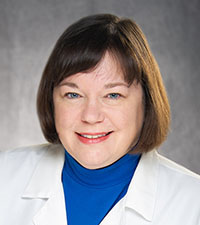
Linda Cadaret, MD
Director, Advanced Heart Failure and Transplant Fellowship Training Program
Clinical Professor of Internal Medicine
Current Fellow

Krishna Sagar Gajula, MD
Medical School: Guntur Medical College
Residency: Guntur Medical College
Chair, Department of Internal Medicine
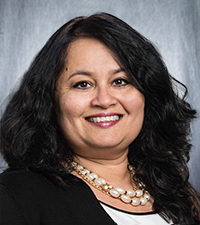
Upinder Singh, MD
Chair and DEO, Department of Internal Medicine
Professor of Medicine–Infectious Diseases
Contact Us
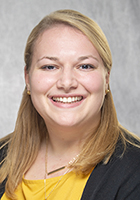
Mallory Ruden
Advanced Heart Failure and Transplant Fellowship
Department of Internal Medicine - 4221 RCP
The University of Iowa Carver College of Medicine
200 Hawkins Drive
Iowa City, IA 52242-1009
Phone: 319-356-3689
Fax: 319-353-6343
email: mallory-ruden@uiowa.edu
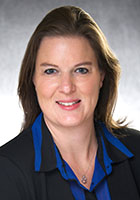
Cari Harland
Assistant Program Coordinator, Advanced Heart Failure and Transplant Fellowship
Phone: 319-356-8001
Email: cari-harland@uiowa.edu
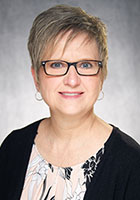
Denise Floerchinger
Internal Medicine Fellowship Program Administrator
Phone: 319-356-2732
Email: denise-floerchinger@uiowa.edu